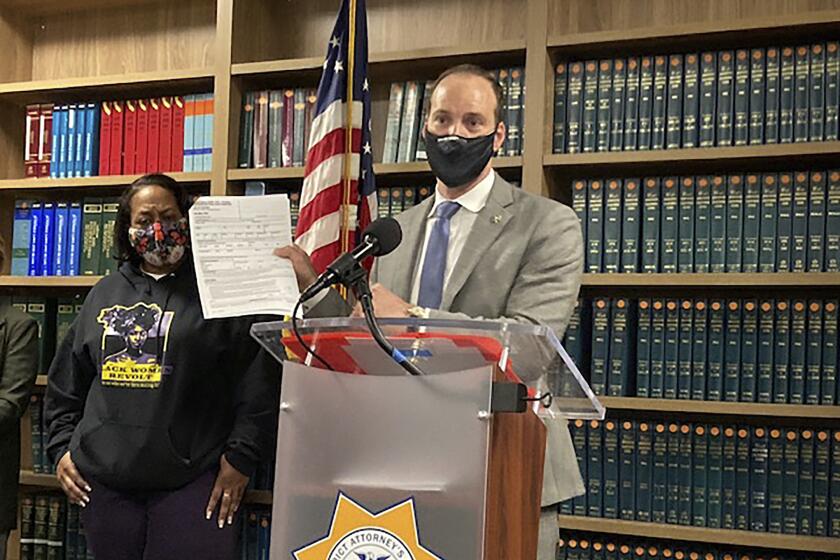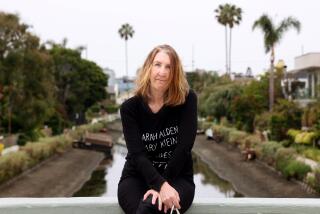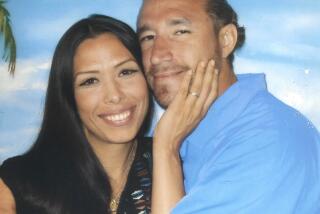A woman was arrested using DNA from her rape kit. She’s now suing San Francisco
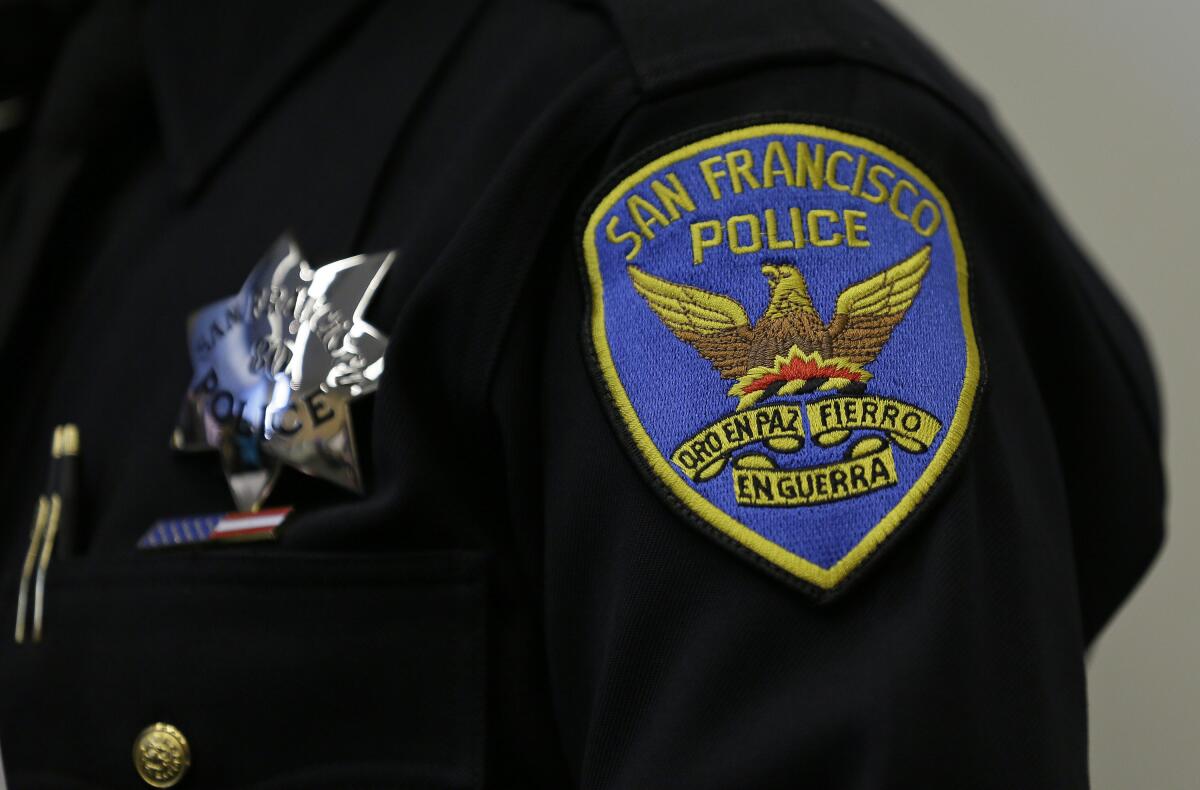
A San Francisco woman whose DNA from a sexual assault examination was used by police five years later to arrest her in connection with an unrelated property crime, spurring a backlash and attempts to ban the practice, has filed a federal civil rights lawsuit against the city.
The woman, who is in her 20s and is referred to as Jane Doe in the lawsuit filed Monday, said police assured her when she reported a sexual assault in November 2016 that her DNA wouldn’t be used for purposes outside the investigation.
However, according to the lawsuit, San Francisco police kept her DNA in a database until at least February 2022 and “tested it in hundreds, if not thousands of cases” by comparing it with DNA evidence collected from crime scenes.
That month, then-Dist. Atty. Chesa Boudin announced his office had found that the San Francisco Police Department crime lab had been using the database of victims’ DNA to connect some of them to crimes. He called for an end to a practice he said was “legally and ethically wrong.”
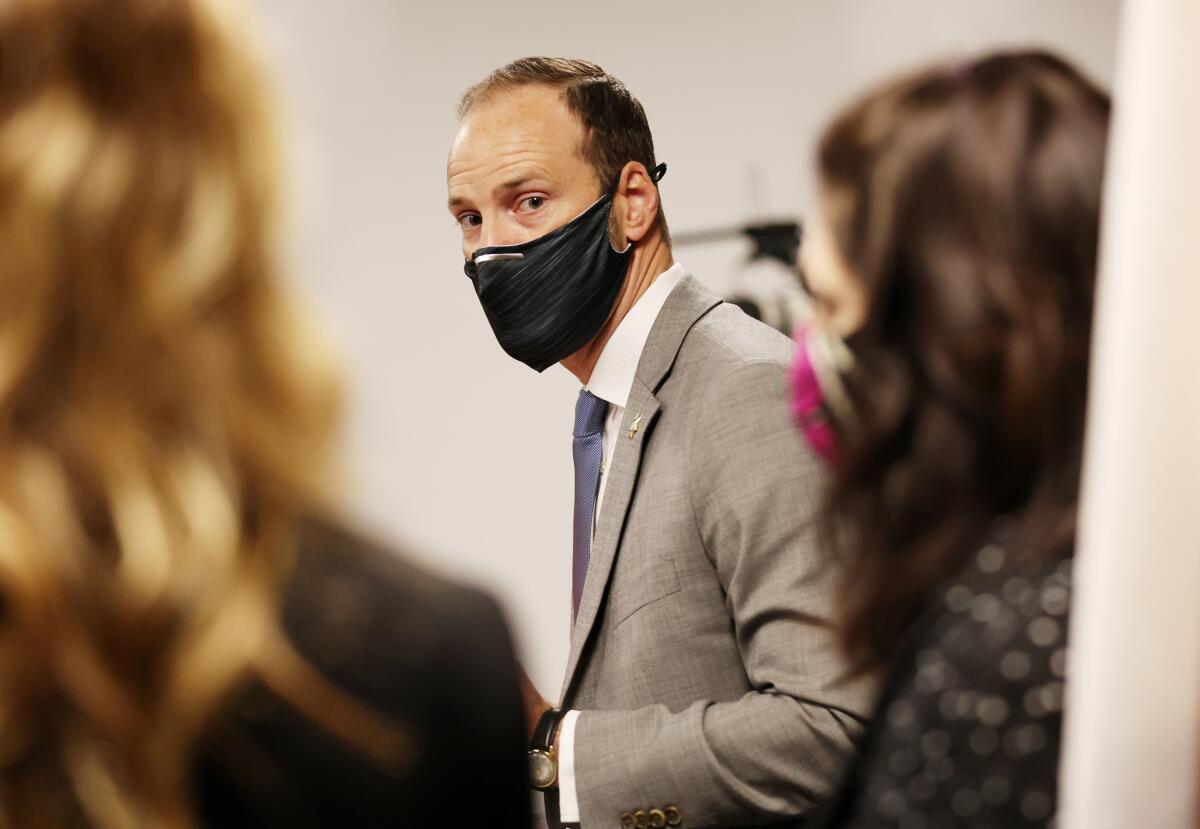
Days after a DNA sample collected from the scene of a burglary came back as a match for Doe, she was arrested and remained in custody for several weeks, according to the lawsuit. Charges against the woman were dropped this year.
Doe told The Times that when she allowed police to take her DNA sample, she had been assured that it would remain “confidential.”
“It’s just traumatizing on so many levels, because I was going through something, and just like any other person would do, I contacted the police and thought they’d do their job,” Doe said. “But they overextended that and did something that was even more violating — something that broke my trust toward law enforcement, which nobody should feel.”
Doe’s attorney, Adante Pointer, said the practice violated constitutional protections against unreasonable searches and seizures, adding that the Police Department may have misused hundreds if not thousands of victims’ DNA in a similar manner. Since 2015, the department had stored crime victims’ DNA samples without their consent or knowledge and even after their cases had been resolved, according to the lawsuit.
Officer Robert Rueca, a Police Department spokesperson, declined to comment on pending litigation but referred to a February news release from Chief Bill Scott.
The investigation is still in progress by the Sheriff’s Department, Los Angeles County Dist. Atty. George Gascón said Monday.
In the release, Scott said the department would “never create disincentives for crime victims to cooperate with police.” If DNA from a rape or sexual assault victim had been used to identify a suspect in another crime, Scott said at the time, he was “committed to ending the practice.”
In May, the San Francisco Board of Supervisors voted to restrict city departments from storing DNA evidence from crime victims in any database not part of the national system for convicted offender and arrestee profiles. The ordinance also required the Police Department to purge any victim DNA samples that had been kept.
State Sen. Scott Wiener (D-San Francisco) introduced a bill in February that would ban law enforcement from using DNA gathered as part of sexual assault and rape examinations against victims.
The bill, SB 1228, was passed by the Legislature and is at Gov. Gavin Newsom’s desk.
Jen Kwart, spokesperson for the San Francisco city attorney’s office, said the city has not been served with Doe’s complaint but would “respond appropriately” when that occurs.
“The City is committed to ensuring all victims of crime feel comfortable reporting issues to law enforcement and has taken steps to safeguard victim information,” she said in a statement.
Revelation that San Francisco police crime lab used sexual assault victim’s DNA against her has prompted an outcry
After Doe gave police DNA evidence in her sexual assault case, she said, she didn’t want to testify in court. The case was eventually dropped, she said.
Doe said what happened to her could deter other survivors of assault from coming forward.
“When it comes to sexual assault, it’s a confusing and hard subject to talk about,” she said. “You know how a turtle is scared in its shell and you poke at it and it goes back in. That’s how I felt — closed in and in a dark hole.”
Pointer said that although San Francisco “got caught with their hand in the cookie jar,” other jurisdictions could still be misusing crime victims’ DNA.
“We’re talking about the most sacred thing to an individual person, which is their DNA,” he said. “There were no safeguards that a person was aware this information was being assessed and used, and no safeguards on who they’re sharing it with.”
More to Read
Sign up for Essential California
The most important California stories and recommendations in your inbox every morning.
You may occasionally receive promotional content from the Los Angeles Times.

